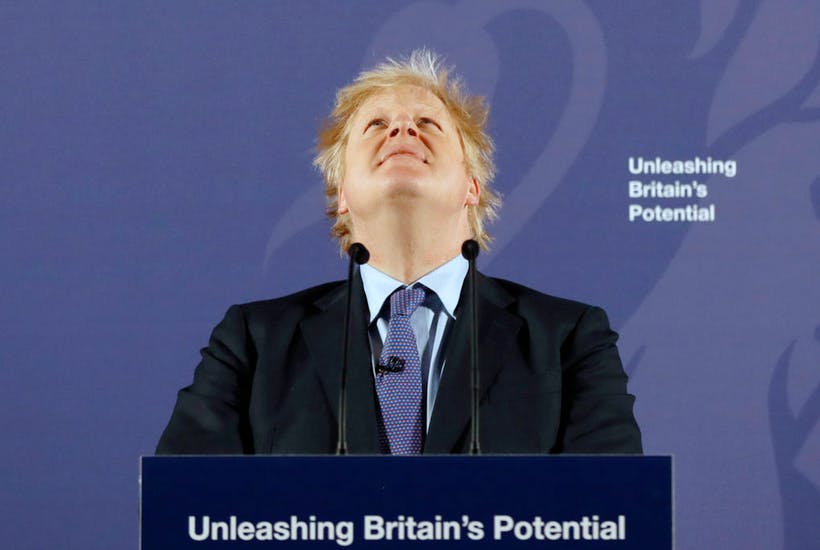In the week after the UK formally left the European Union, we are still no closer to understanding how the British government will meet the Prime Minister’s goal of attracting “the brightest and the best” to these shores.
Ensuring a continued flow of workers from anywhere in the world, as part of the new immigration system following the end of free movement of people to and from EU nations, will be vital for meeting any target for stronger economic growth.
Skills and talent have long dominated the migration debate, reinforced by various slogans of controlling migration.
During the election campaign, the Conservatives indicated they would follow an Australian-style point based system to attract the ‘brightest and the best’. Reducing the inflow of the so called “low skilled” workers has probably been the main focus of policies to stem EU labour migration. But how the actual system will work and will differ from what we currently have is not yet known.
A week ago, the Home Office unveiled a new “Global Talent” route into the UK for the “world’s brightest and best”, which looks like a new version of the Tier 1 (Exceptional Talent) visa without the cap of 2,000 places. However, removing a cap from a scheme that never ever hit the upper limit seems rather odd.
More importantly, it also shows that the government has failed to understand what motivates highly-skilled people who can find secure, well-paid employment almost anywhere to choose to move to Britain and why those already here continue to stay in the face of endemic political uncertainty.
The Conservative party has used the Australian-style point based system as a powerful slogan to suggest a radical system of skills-based discrimination that will control immigration flows and match social needs. But will it be able to do so?
The recommendations of the Migration Advisory Committee (MAC) report published last week suggested that the government should only introduce a points-based system as a route for skilled workers who do not have a job offer. More generally, the MAC suggested increasing the flexibility of the new immigration system, lowering the salary threshold for it to become applicable from £30,000 to £25,600, which would make it easier for critical workers such as teachers and NHS employees, as well as people at the start of their careers to qualify.
These recommendations match employers’ hope for a less complicated, more transparent and cost-effective system for applicants. And yet the Government has indicated it will ignore that and instead plough on with a points-based system.
Employers also raised concerns that restrictive policies would deter potential incomers and make recruitment in certain sectors more difficult. London, with a foreign-born population of 38 per cent, is expected to be hit harder by the proposed system.
The MAC also thinks that these recommendations could impact on a range of aggregate outcomes. As well as a reduction in the levels of immigration, the size of the UK population and the prospects for overall output and living standards would deteriorate.
The overall impression these proposals leave is that the noisy debate about skills and talent, salary thresholds and points simply masks the motivations and aspirations of why people move and stay in the UK. The overall attractiveness of the United Kingdom to any type of worker may have suffered. This should have more attention in the public debate. There must be more reflection on how welcoming and friendly the environment is for those already here, and what integration strategies are in place to facilitate the settlement process and community cohesion for newly-arrived migrants.
The motives behind high-skilled and low-skilled migration flows has both push factors and pull factors (as well as being subject to a cross-country comparison) so it is crucial that economic risks and opportunities are well understood by migrants or potential migrants and are mitigated where possible. In 2013, for example, return migration made up 25 per cent of immigration flows at EU level. Overall high-skilled immigrants were more likely to return at home than low-skilled immigrants who were unlikely to re-enter the labour market back home.
Highly and lower-skilled migrants are economic migrants, attracted by better job opportunities and employment conditions as well as quality of life and cultural vitality. Having a visa system designed for exceptionally talented individuals is not necessary an automatic guarantee that ‘the brightest and the best’ will be attracted particularly if in neighbouring countries a visa is not required, and the environment is more welcoming.
In post-Brexit Britain, migrants with in-demand skills may be more selective in their decisions and choose to move where they would feel more welcome and where they would feel their contribution is valued. Instead of considering migrants as mere fiscal resources we should recognise more widely the cultural and social benefits of migration. Although anti-immigration sentiments may be less likely to be directed towards highly-skilled migrants, they affect the attitudes and motivation of higher-skilled people in thinking about where they want to work and live.
Unless we change the quality of our welcome, countries such as France or Germany are likely to be chosen by such migrants as an alternative to a post-Brexit Britain, which would be an ironic side-effect of a policy aimed at making Britain better off outside the EU.
Chiara Manzoni is a Senior Social Researcher at the National Institute of Economic and Social Research






Comments